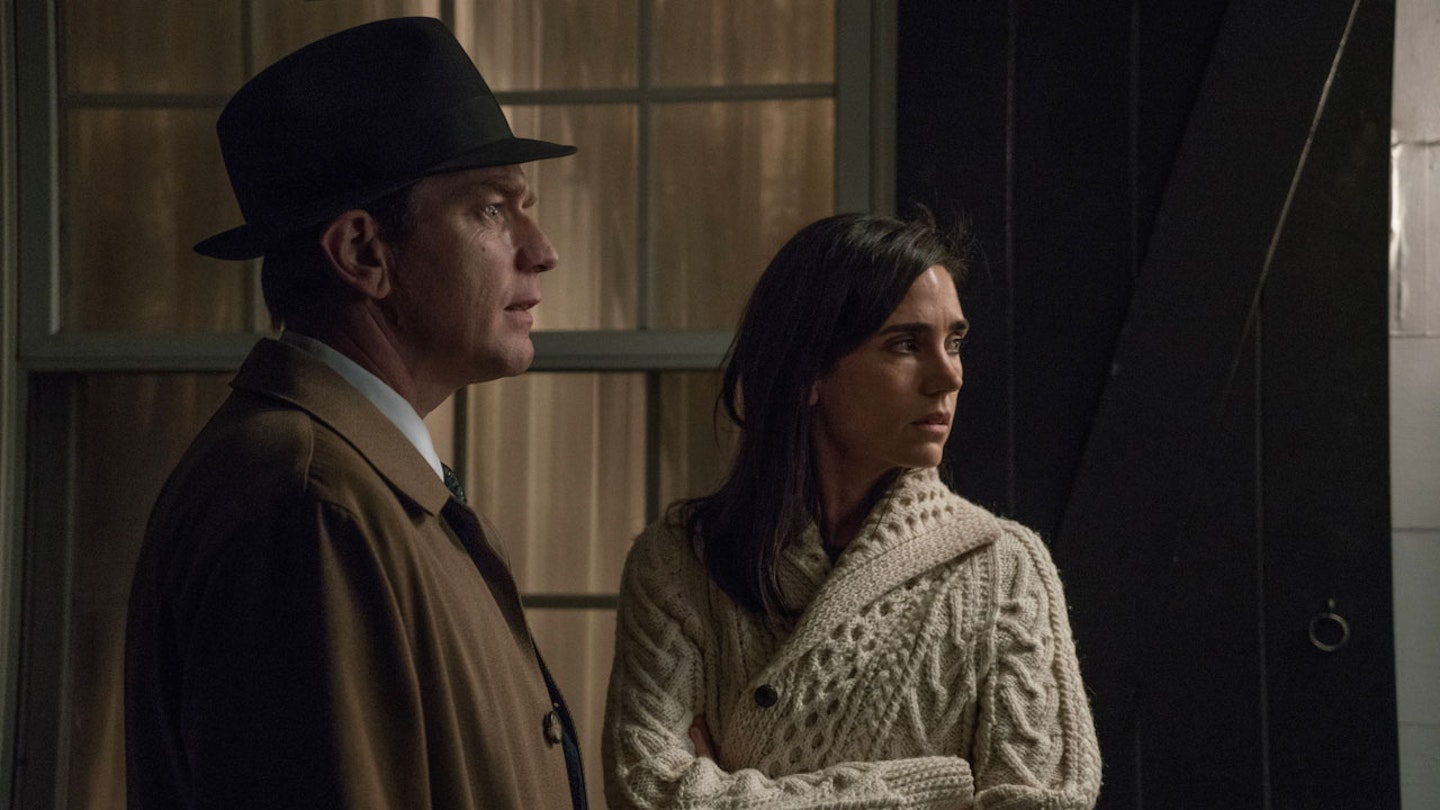Ewan McGregor, the actor, has frequently found himself drawn to challenging material – the heroin addiction of Trainspotting, the nourish bleakness of Young Adam, the sex and drugs of Velvet Goldmine. American Pastoral, therefore, certainly fits the bill for Ewan McGregor, the director. But a Pulitzer Prize-winning Philip Roth novel, juggling multiple hefty themes across several narrators of varying reliability, is an ambitious task that would stretch even a seasoned director, let alone a first-timer. Alas, so it proves.
It's an ambitious task that would stretch even a seasoned director, let alone a first-timer. Alas, so it proves.
John Romano’s script, which has to turn a deeply internal book into a largely external movie, streamlines Roth’s disorderly timelines into a single narrative, bookended by scenes set in the present. It’s here that we meet Roth surrogate Nathan Zuckerman (played with poise by David Strathairn) who learns that this old friend, ‘The Swede’ (McGregor), has died.
This kick-starts Zuckerman reflecting on the life of The Swede, once the chiselled star of his high school – the prom king, an ace quarterback, and the paragon of a small Jewish community hoping to remedy the horror stories of the Holocaust by turning to a fair-skinned Jewish-American alpha male. “Our hero,” he calls him. “Our Kennedy”.
Post high school, we learn the Swede enjoyed a bucolic life in rural New Jersey with his Gentile wife (Jennifer Connelly) and his daughter, Merry (Dakota Fanning). When we first meet Merry, she is the apple of her father’s eye, the nucleus of their nuclear family. But cracks in this perfect life soon emerge. Merry suffers from a debilitating stutter, and as a teenager, develops a rebellious streak. At 16, angry and radicalised, she commits a horrific act of terrorism, and The Swede’s American Dream is over.
This is missing the wit, nuance, and insight of a book thought by many to be unadaptable.
In the novel, The Swede grappled with his neutral politics as his family (and his country) respond with extremism. Reduced to the running time of a film and the speech of the characters, American Pastoral becomes one father’s melodramatic quest to find his estranged daughter. The book has lofty things to say about a country; the film has muddled things to say about a man whose life didn’t pan out as he hoped.

But that’s not the only thing that hasn’t translated well. Roth’s dialogue, so droll and deft on the page, sounds broad and stagy on screen. “This...is America!” announces Swede at one point, like a teacher on a school trip, failing to muster the authority the moment requires.
It’s a shame, because the intent is genuine and wholehearted. This is a passion project for McGregor, who had been attached to star for years, and he brings a gentle incorruptibility to his performance. The period attention-to-detail is sharp, too. But again, it resorts to obvious clichés: setting the scene with archive footage of Woodstock and the moon landing is about as subtle as a tank in a model village. To borrow Roth’s coinage, it could all do with being a little more untanklike.

